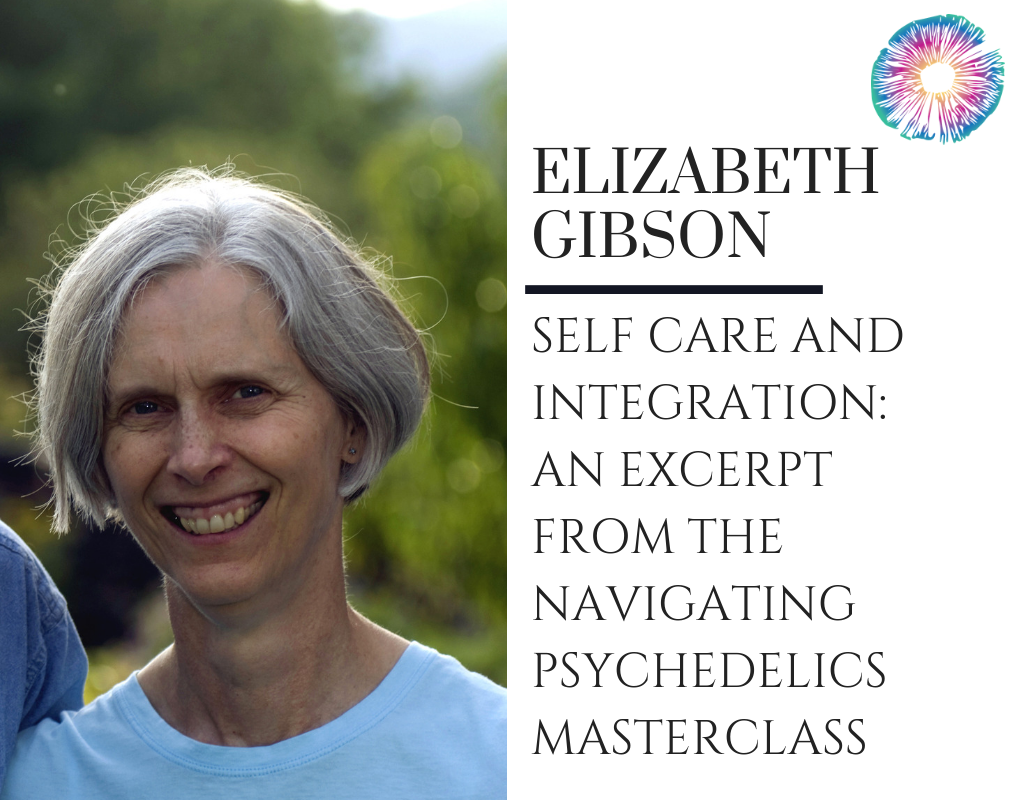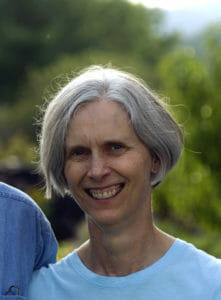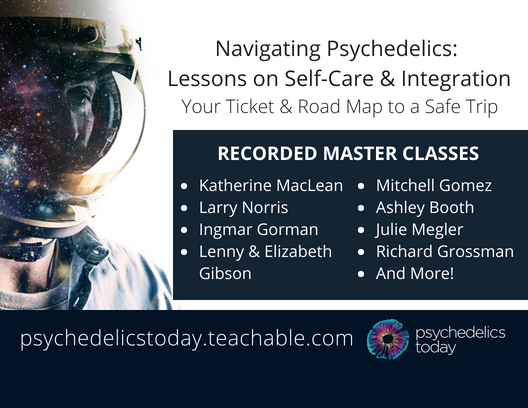
This is an exclusive interview with Elizabeth Gibson from Dreamshadow. This interview is a master class from the Psychedelics Today online course, Navigating Psychedelics: Lessons on Self Care and Integration.
3 Key Points:
- A common mistake people make is thinking all of the work happens in the session, when really only a portion of the work happens in the session, and the rest happens afterward during integration.
- It’s important not to isolate yourself after this work, it’s important to search out people who will be understanding of your experience.
- Elizabeth compares journeywork to planting a seed. You can’t grow a whole plant in one session, you simply plant the seed. You determine how it grows by how you water and cultivate it (integrate it), it’s a process that can’t be rushed.
Support the show
- Patreon
- Leave us a review on iTunes
- Share us with your friends – favorite podcast, etc
- Join our Facebook group – Psychedelics Today group – Find the others and create community.
Navigating Psychedelics
Trip Journal Integration Workbook


Show Notes
Integration
- Integration is one of the most important aspects of work with extraordinary experiences
- “How do you take material that’s come up and bring it into your everyday life? How do you realize the benefit of the intense work that you’ve done?” – Elizabeth
Elizabeth’s Background
- Elizabeth has been facilitating Breathwork for 23 years
- She was a part of MDMA trials in the 80’s when it was legal
- Elizabeth helped edit the MDMA Assisted Psychotherapy Manual
Integrating the Experience
- A common mistake that people make is thinking all of the work is in the session itself, but really that’s only half of the work. The other half of the work happens after leaving the session, the integration.
- Integration is about being more present with ourselves in every moment, not just yearning to get back to the state of the session
- The long term subtle changes that happen over time are the most important
- Stan Grof says that aerobic activity like swimming, running, etc is a way of connecting with energy and feelings that operate at deeper levels
- Elizabeth says she likes drawing immediately after an experience to work with it symbolically, and then journaling a day or two later once she is able to verbalize her experience
- “Just do it before you think too much about it”
Community Benefits
- It’s important not to isolate yourself after this work
- “The principle of community is really important. We can’t do this work completely on our own.” – Elizabeth
- We are all the descendants of successful tribes
- It’s important to search out people who will be understanding of your experience
- If there is somatic stuff happening in the body, it is a good idea to do some body work, such as deep tissue massage
- On the other side, if we are holding the space for others who went through a session, it’s important for us to make ourselves available for them
- Just to talk and to be heard is so important on its own
- Email follow up is tricky because a person can pour their heart out or be very vague or not get deep in their email
- The email follow up method is also tricky because of difficult response time and interpretation of responses
- Facebook groups can be a helpful way of finding the others and creating a community to be able to reach out to understanding individuals
- Elizabeth says it’s like the analogy of seeds being planted, you decide how you want it to grow and how you cultivate it
- Acting too quickly after an experience isn’t always the best idea, its best to keep it slow
Journeywork Tips
- Safe setting
- Access to people who will be able to support you afterward
Links
About Elizabeth

Elizabeth Gibson, M.S., holds a bachelor’s degree in literature and a master’s degree in biology from The University of Tulsa. She has completed Herbert Benson’s Clinical Training in Mind/Body Medicine at Harvard Medical School. Previously she worked as a consultant at Arthur D. Little, Inc., and Radian Corporation in the areas of environmental protection and food research. She is a writer, editor and homemaker with interests in environmental literacy, yoga, music and gardening. Elizabeth is the editor of Stanislav Grof ’s The Ultimate Journey: Consciousness and the Mystery of Death and a contributor to the teaching manual MDMA-Assisted Psychotherapy for the Treatment of Posttraumatic Stress Disorder, both published by the Multidisciplinary Association for Psychedelic Studies. For the past 12 years, she has been responsible for local news for the Town of Pawlet, and from 2008 – 2014 she was the editor of the weekly environment section for the Rutland Herald and Montpelier Times Argus newspapers in Vermont.

